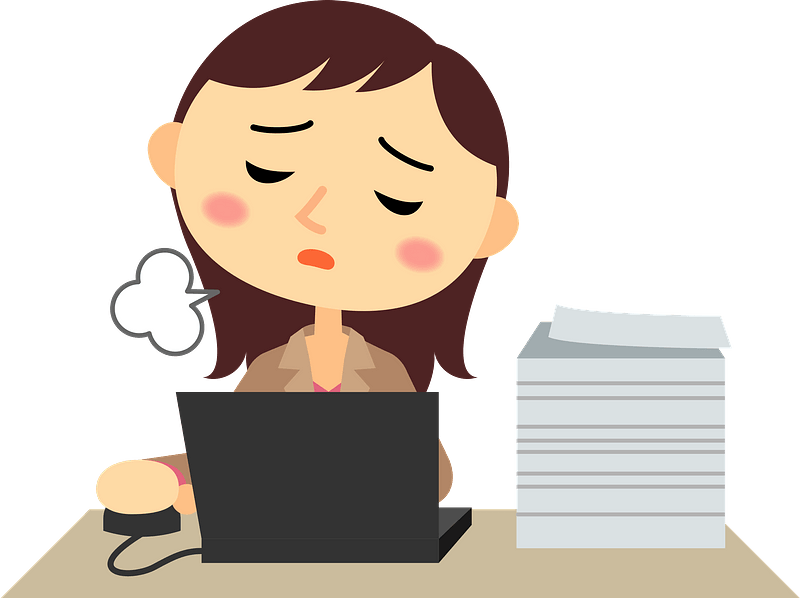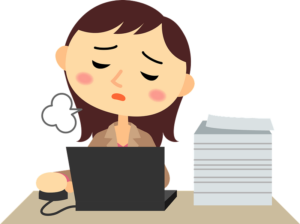Introduction:
In today’s modern work environment, many individuals spend a significant portion of their day sitting in front of computers, leading to potential health issues. Prolonged sitting, poor posture, and repetitive tasks can contribute to musculoskeletal problems, eye strain, mental fatigue, and overall sedentary lifestyles. This article aims to provide practical suggestions for individuals to prevent health problems and promote well-being during long office hours.
-
Ergonomic Workstation Setup:
Investing in an ergonomic workstation setup is crucial for maintaining good posture and reducing the risk of musculoskeletal issues. Ensure that your chair and desk are properly adjusted to support proper body alignment. Your feet should be flat on the floor or supported by a footrest, and your knees should be at a comfortable 90-degree angle. Position your monitor at eye level, with the screen about an arm’s length away, to reduce strain on your neck and eyes.
-
Regular Movement Breaks:
Take regular breaks to break up long periods of sitting. Set reminders to stand up, stretch, and move around every hour or so. Consider incorporating short bursts of physical activity during these breaks, such as walking, stretching exercises, or even climbing stairs. These movements help improve blood circulation, reduce muscle stiffness, and refresh your mind.
-
Maintain Proper Posture:
Maintaining good posture while sitting is essential for spinal health and overall well-being. Sit with your back straight, shoulders relaxed, and ensure that your chair provides adequate lumbar support. Avoid slouching or hunching forward, as it can lead to back and neck pain. Consider using posture-correcting devices or ergonomic chairs to promote proper alignment.
-
Eye Care and Screen Breaks:
To prevent eye strain, follow the 20-20-20 rule. Every 20 minutes, look away from the screen and focus on an object at least 20 feet away for 20 seconds. This helps relax your eye muscles and reduces fatigue. Additionally, adjust screen brightness, contrast, and use a blue light filter to minimize eye strain caused by prolonged screen exposure.
-
Stay Hydrated and Maintain Healthy Snacking:
Drink plenty of water throughout the day to stay hydrated. Dehydration can cause fatigue and reduced concentration. Avoid excessive caffeine and sugary drinks, as they can lead to energy crashes. Opt for healthy snacks like fruits, nuts, and vegetables to maintain energy levels and promote overall well-being.
-
Practice Desk Exercises and Stretching:
Incorporate simple desk exercises and stretching routines to alleviate muscle tension and promote flexibility. Perform neck rotations, shoulder shrugs, wrist stretches, and gentle leg exercises while sitting. Stand up and do full-body stretches whenever possible. These movements improve circulation and reduce the risk of muscle imbalances and stiffness.
-
Create a Positive Work Environment:
Promote a positive work environment that supports employee well-being. Encourage open communication, breaks, and social interactions among colleagues. Consider incorporating standing or walking meetings to add movement into the workday. Create designated areas for relaxation or quiet spaces where employees can unwind and recharge during breaks.
-
Mental Breaks and Stress Management:
Take regular mental breaks to recharge your mind and prevent mental fatigue. Practice stress management techniques such as deep breathing exercises, mindfulness, or meditation. Engage in activities that promote relaxation, such as listening to music, reading, or taking short walks outside during lunch breaks.
-
Maintain a Balanced Work-Life Integration:
Strive for a healthy work-life integration to prevent burnout and maintain overall well-being. Set boundaries and allocate time for activities you enjoy outside of work, such as hobbies, exercise, spending time with loved ones, or pursuing personal interests. Prioritize self-care and ensure you have a good work-life balance.
-
Seek Professional Help:
If you experience persistent physical discomfort, chronic pain, or mental health concerns, seek professional help. Consult with a healthcare provider, ergonomic specialist, or occupational therapist who can provide personalized advice and guidance based on your specific needs.
Conclusion:
Maintaining health and well-being during long office hours is crucial for individuals to thrive in their professional and personal lives. By implementing ergonomic workstation setups, taking regular movement breaks, practicing good posture, and caring for our eyes, we can prevent musculoskeletal issues and reduce eye strain. Additionally, staying hydrated, practicing desk exercises and stretching, creating a positive work environment, managing stress, and maintaining a balanced work-life integration contribute to overall health and well-being. Remember, prioritizing self-care and adopting healthy habits are key to a productive, fulfilling, and sustainable work life.


